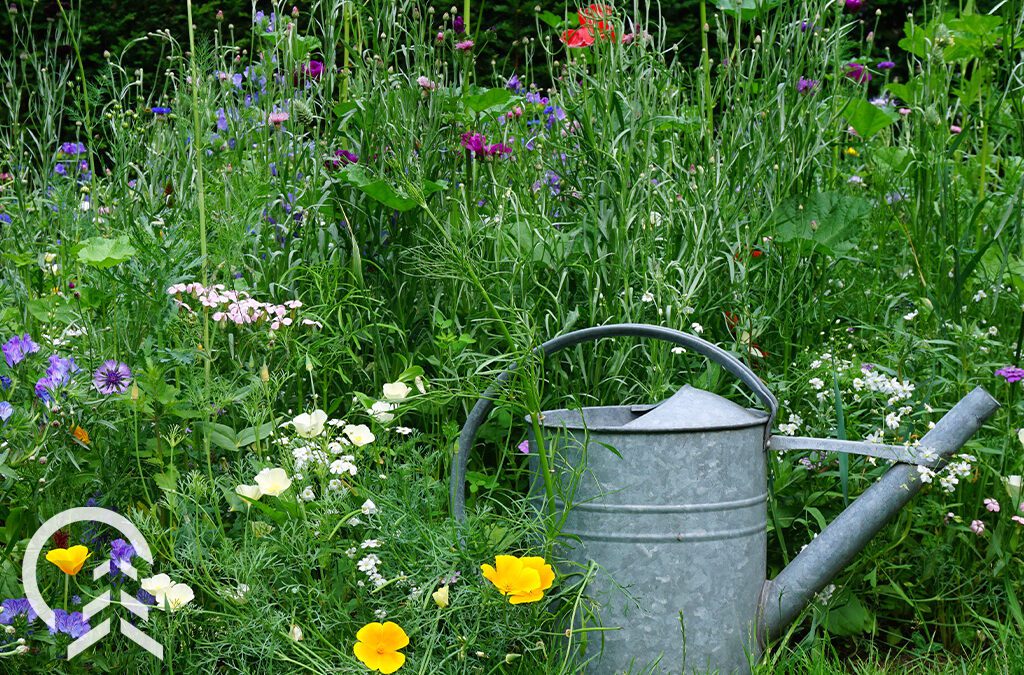Water is a precious resource that is becoming increasingly scarce in many parts of the world. With climate change leading to more frequent and severe droughts, it is more important than ever to practice water-wise gardening techniques. Water-wise gardening involves designing gardens that are not only beautiful but also conserve water and reduce water usage. By implementing these techniques, gardeners can reduce their water bills, conserve water for future generations, and create a more sustainable garden.
One of the key principles of water-wise gardening is to choose plants that are adapted to the local climate and soil conditions. Native plants are especially well-suited for water-wise gardening, as they are naturally adapted to the local environment and require less water than non-native plants. When selecting plants for a water-wise garden, it is important to consider factors such as the plant’s water requirements, soil type, sunlight exposure, and climate zone. By choosing plants that are well-suited to the local conditions, gardeners can reduce the need for supplemental watering and create a more sustainable garden.
In addition to choosing the right plants, water-wise gardening techniques also involve proper soil preparation and maintenance. Healthy soil is essential for water-wise gardening, as it helps retain moisture and nutrients, reduces erosion, and supports plant growth. To improve soil health, gardeners can add organic matter such as compost, mulch, or leaf litter to the soil. Organic matter helps improve soil structure, increase water retention, and promote the growth of beneficial microorganisms. By incorporating organic matter into the soil, gardeners can reduce the need for watering and create a more resilient garden.
Mulching is another important water-wise gardening technique that helps conserve water and reduce evaporation. Mulch is a layer of organic or inorganic material that is spread on the soil surface to help retain moisture, suppress weeds, regulate soil temperature, and improve soil health. Organic mulches such as bark, wood chips, straw, or compost can be used to provide a protective layer over the soil, while inorganic mulches such as gravel, pebbles, or plastic can be used to minimize water loss and inhibit weed growth. By mulching garden beds, gardeners can reduce water evaporation, suppress weeds, and improve soil health, leading to a more water-efficient garden.
Another water-wise gardening technique is to water plants efficiently and effectively. Deep watering is a key strategy for water-wise gardening, as it encourages plants to develop deep roots that can access moisture deep within the soil. Shallow watering, on the other hand, only wets the surface of the soil and encourages plants to develop shallow roots that are more vulnerable to drought. To deep water plants, gardeners can use drip irrigation systems, soaker hoses, or watering wands to deliver water directly to the plant’s roots. By watering plants deeply and infrequently, gardeners can encourage healthy root growth, reduce water usage, and create a more water-efficient garden.
Furthermore, timing is important when it comes to watering plants in a water-wise garden. Watering plants early in the morning or late in the evening can help reduce water loss due to evaporation and minimize the risk of fungal diseases. By watering plants during cooler times of the day, gardeners can ensure that water is efficiently absorbed by the plants and not lost to evaporation. Additionally, watering plants during the growing season and reducing watering during the dormant season can help plants adjust to natural rainfall patterns and develop deeper, more resilient roots.
Lastly, proper irrigation management is essential for water-wise gardening. Overwatering is a common problem in gardens, as it can lead to water waste, nutrient leaching, and root rot. To prevent overwatering, gardeners can monitor soil moisture levels, adjust irrigation schedules based on weather conditions, and use smart irrigation systems that deliver water only when needed. By practicing proper irrigation management, gardeners can reduce water usage, prevent water waste, and create a more sustainable garden.
In conclusion, water-wise gardening techniques are essential for creating beautiful, sustainable gardens that conserve water and reduce water usage. By choosing the right plants, improving soil health, mulching garden beds, watering plants efficiently, and managing irrigation properly, gardeners can create gardens that are not only water-wise but also environmentally friendly. With climate change leading to more frequent droughts and water shortages, it is more important than ever to practice water-wise gardening techniques and help conserve water for future generations. By implementing these techniques, gardeners can reduce their water bills, create healthier gardens, and contribute to a more sustainable future.

